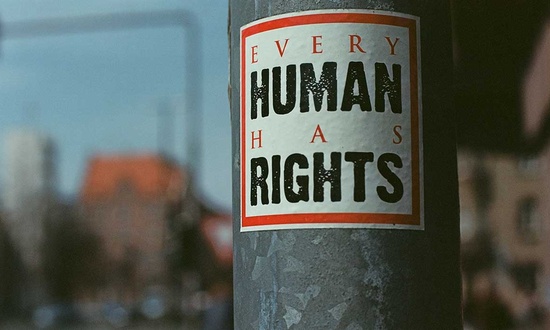Atheists’ argument that goodness and moral standards can exist without God does not hold up. If there’s no God, people don’t live after death and aren’t held accountable for their actions, good or evil. That’s why Dostoevsky said, “Destroy a man’s belief in immortality and... everything would be permitted, even cannibalism” (The Brothers Karamazov).
To say that an atheistic worldview provides no basis for the existence of good and evil does not mean that atheists have no sense of right and wrong. They do. They live in a culture influenced by a historic belief in God and the morality revealed in Scripture. This provides them a residual basis for believing that moral categories are important, while their own worldview doesn’t.
How does an atheistic worldview explain an atheist’s morals? Suppose time, chance, and natural forces accounted for us. If we could move from nonlife to life and from irrational to rational—quantum leaps, to say the least—then what more could we do than invent pragmatic social rules to govern group behavior? Since the powerful make the rules and they would survive longer by making the weak serve them, then why would anyone but the weak want life to change?
If the natural world is all there is, would mankind get its morals from animal instincts? A gazelle runs from the cheetah, but gazelles don’t sit around the campfire and discuss how unfair it is for cheetahs to kill gazelles. Neither do cheetahs wrestle with the morality of whether they should kill gazelles. Do fish have rights that sharks should recognize and respect? Are sharks evil for eating fish? Would a good shark refrain from taking advantage of vulnerable fish? If so, how long would it survive?
In an evolutionary worldview, why object to stronger human beings stealing from or killing weaker ones? Wouldn’t this simply be natural selection and survival of the fittest, not a question of right or wrong?
It doesn’t help to define happiness as pleasure, as opposed to pain. Being eaten by cheetahs doesn’t make gazelles happy, but eating gazelles makes cheetahs happy. Animals can experience “happiness” or lack of it, but that doesn’t provide a moral code. Animal ruthlessness and lack of compassion for the weak is simply how the system works. How could anyone view it as evil?
The naturalist may claim that the survival of the fittest is descriptive, not prescriptive; that it describes the world as it is, not as it should be. But on what does he base any sense of should? Why “should” he operate differently than the way the natural order operates, since he’s part of that natural order himself? Any appeal to natural law seems baseless, unless there is a Creator, a Lawgiver, who has built into us a sense of that natural law.
Atheists who have thought through the implications of their worldview occasionally admit its utter moral emptiness. Unbeliever William Provine put it this way in a debate: “Let me summarize my views on what modern evolutionary biology tells us loud and clear.... There are no gods, no purposes.... There is no life after death.... There is no ultimate foundation for ethics, no ultimate meaning in life, and no free will for humans.”
Notice his admission that there is no ultimate foundation for ethics. The naturalistic worldview has no basis for declaring some things good and others evil.
But surely something within Dr. Provine can look at good and rejoice, then look at evil and cry out, “This is wrong!” What is it that cries out? The Bible calls it the conscience, God’s law written on our hearts (see Romans 2:15). We have a moral code, a natural law built into us. That’s what allows us to step outside of what we see around us and call it good or evil.
Excerpted from If God Is Good: Faith in the Midst of Suffering and Evil.
Photo by Lachlan Gowen on Unsplash




